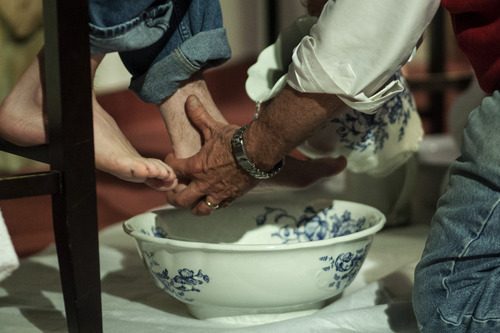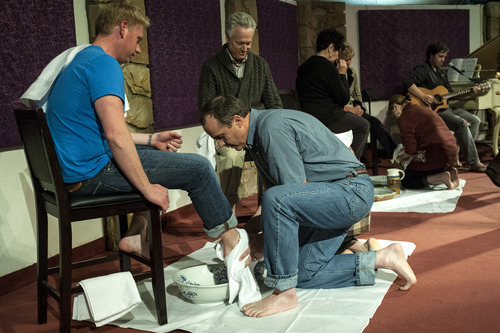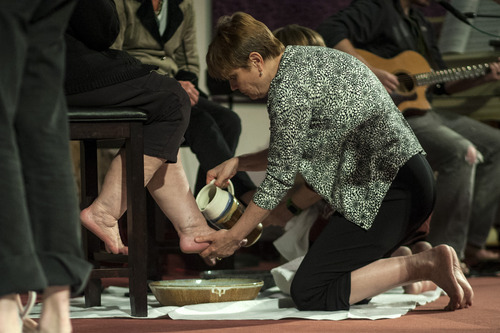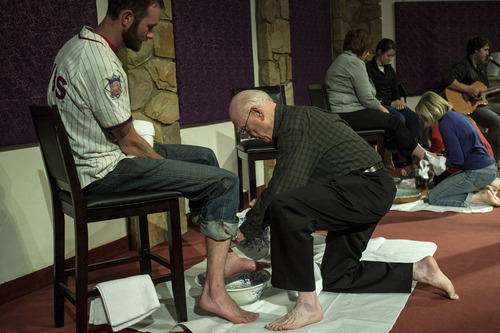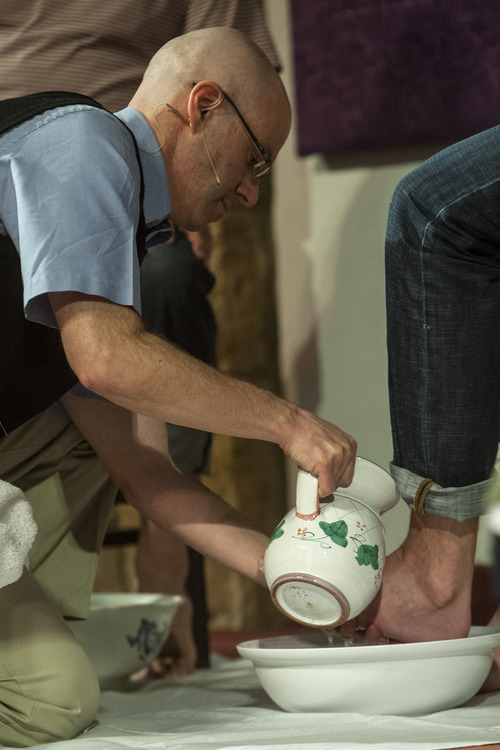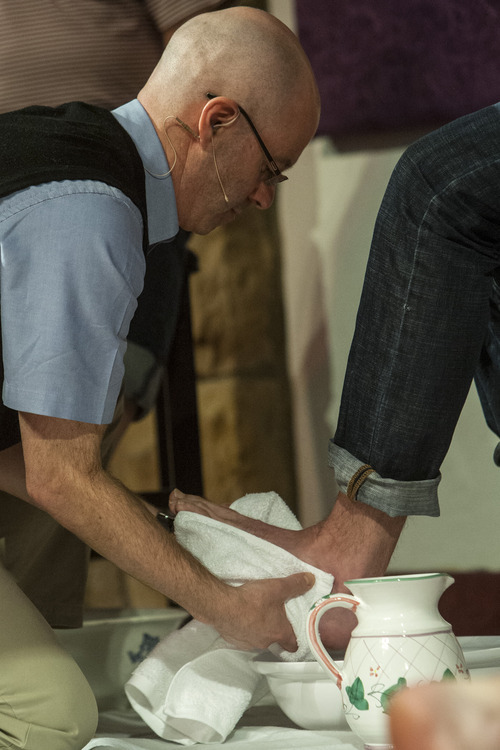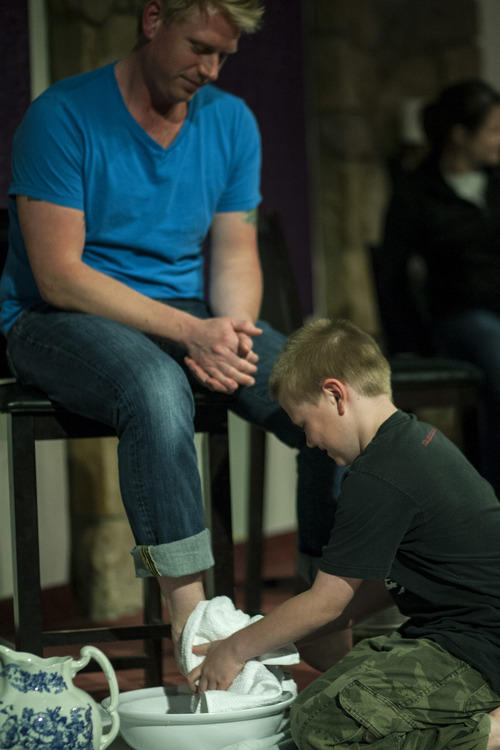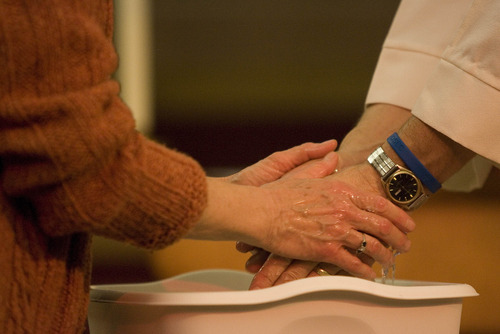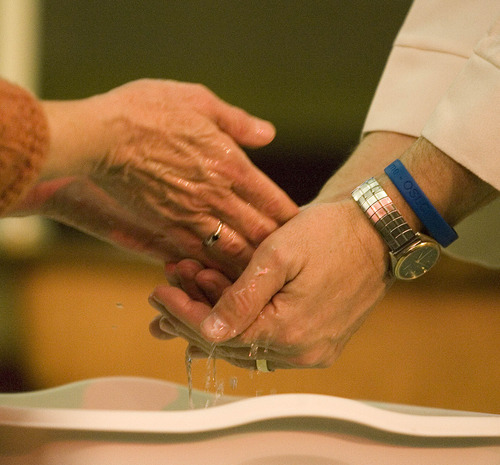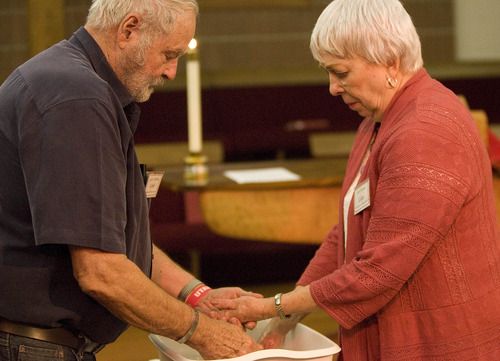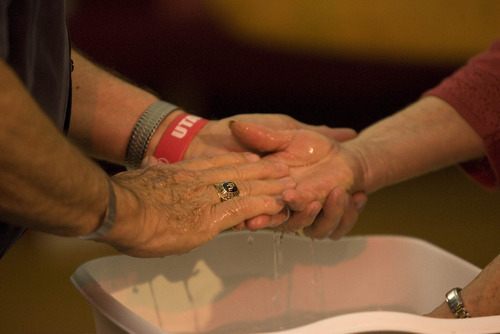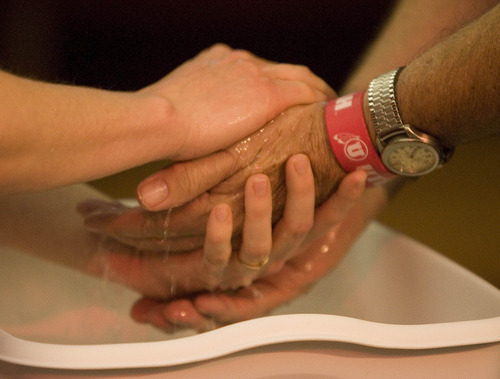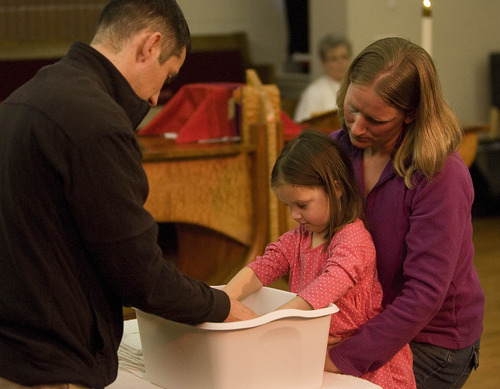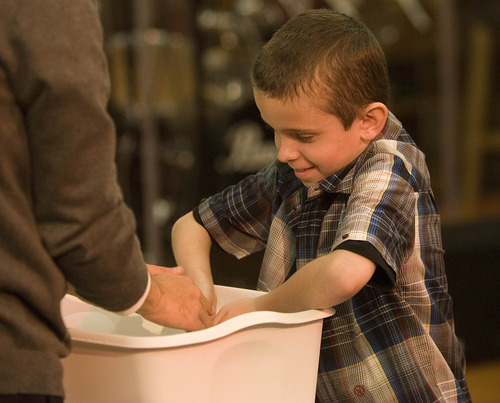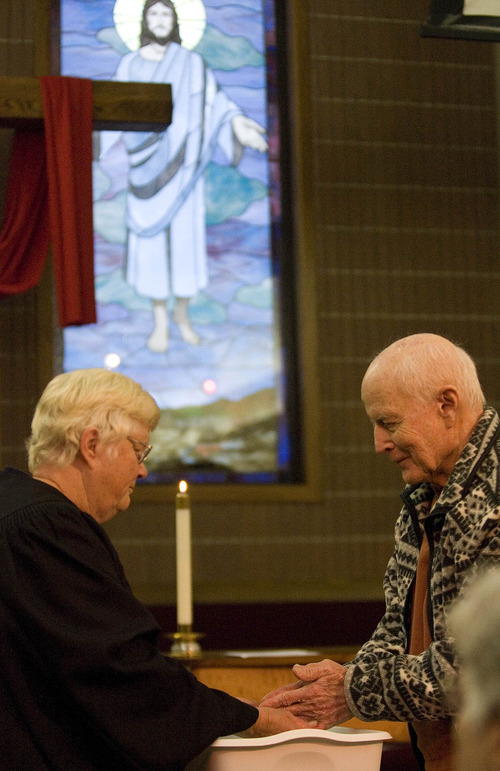This is an archived article that was published on sltrib.com in 2012, and information in the article may be outdated. It is provided only for personal research purposes and may not be reprinted.
The Holy Week foot-washing ritual has not been part of the Rev. Phil Hughes' ministry — until now.
For the first time in his life, either as a Christian believer or as a pastor, Hughes participated Thursday in the ancient rite at his Millcreek church.
For many members of his Mount Olympus Presbyterian Church, it was also a new experience.
The decision to add foot-washing to the Maundy Thursday experience came, Hughes said, because his congregants are studying the Gospel of John this year — and John is the only New Testament writer who gives an account of the foot-washing.
"We felt it would be meaningful not just to hear about it," he said, "but to do it."
John 13 describes how Jesus "got up from the meal, took off his outer clothing and wrapped a towel around his waist. After that, he poured water into a basin and began to wash his disciples' feet, drying them with the towel that was wrapped around him.
"You do not realize now what I am doing," Jesus told them, "but later you will understand."
Traveling the dusty roads of the Middle East during Jesus' time, wearing only sandals, men's feet could become caked in dirt. It was the custom for a host to arrange for a slave or servant to wash any visitors' feet. In rare cases, the host himself would do it for honored guests.
With his disciples, Jesus took on the role of host and servant in an act that has been seen through the ages as deeply humble and profoundly metaphorical.
"Jesus lowered himself to serve sinful mankind, clothing himself in miserable flesh and washing away our sins through his sacrifice," writes Thomas L. McDonald at patheos.com. "Thus is the entire life of Christ contained symbolically in the washing of the feet."
Catholics have included foot-washing in their Easter-related services for centuries in which 12 volunteers — men and women — offer to stand in for the apostles. Several Protestant groups, especially Episcopalians and Lutherans, also have followed the tradition.
Another congregation, Our Saviour's Lutheran Church in Holladay, has been doing Holy Week foot-washing for years, but this time decided to use hands instead.
It was meant to work this way: Each person extends his or her hands to another, who gently washes those hands with water. That person then washes the next person in line and so forth.
"The symbolism and meaning are the same," Pastor Jeff Beebe said. "It is about service to others."
Plus, he added, it is culturally easier, more inclusive — and a little more practical.
Jesus' example
"Now before the feast of the passover, when Jesus knew that his hour was come that he should depart out of this world unto the Father, having loved his own which were in the world, he loved them unto the end.
"And supper being ended, the devil having now put into the heart of Judas Iscariot, Simon's son, to betray him;
"Jesus knowing that the Father had given all things into his hands, and that he was come from God, and went to God;
"He riseth from supper, and laid aside his garments; and took a towel, and girded himself.
"After that he poureth water into a bason, and began to wash the disciples' feet, and to wipe them with the towel wherewith he was girded. ...
"So after he had washed their feet, and had taken his garments, and was set down again, he said unto them, Know ye what I have done to you?
"Ye call me Master and Lord: and ye say well; for so I am.
"If I then, your Lord and Master, have washed your feet; ye also ought to wash one another's feet.
"For I have given you an example, that ye should do as I have done to you."
Source: John 13: 1-5, 12-15 (King James Version)


